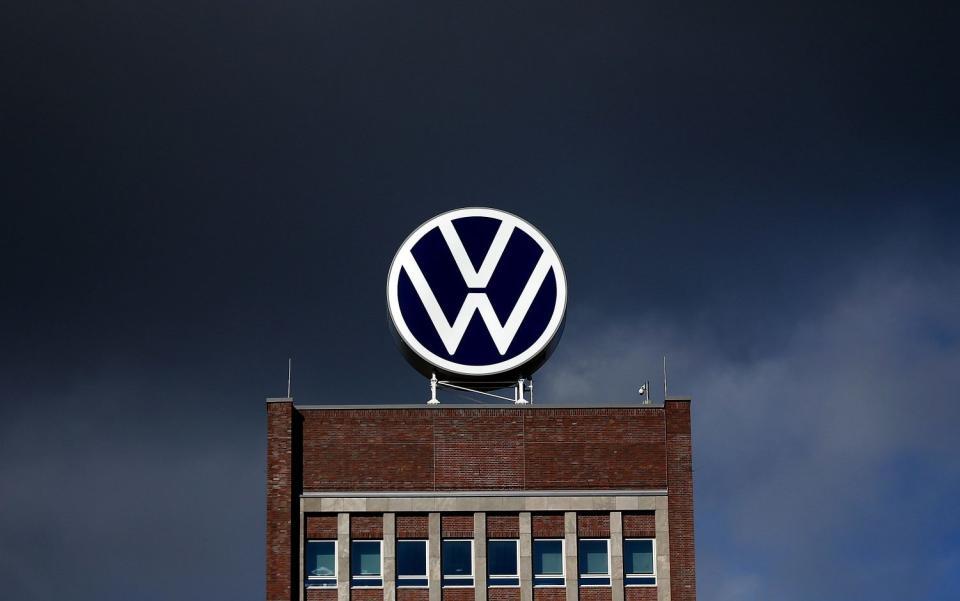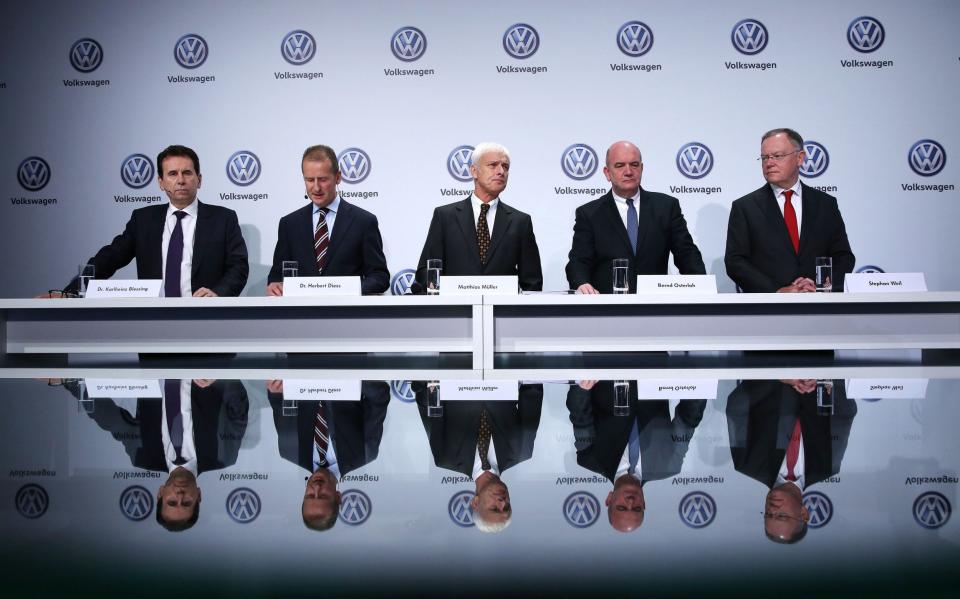As another fraud scandal threatens VW, have German carmakers really cleaned up their act?

Volkswagen's chief executive, Martin Winterkorn, said he was "stunned" to discover the company had cheated emissions tests when he revealed the "dieselgate" scandal to the world.
In September 2015, the German executive stepped down after being told of investigations into the "defeat devices" on the company's cars by the US Environmental Protection Agency.
Ultimately, the scandal boiled down to internal culture. Winterkorn's employees, it emerged, had been too scared to tell him Volkswagen would be unable to meet public targets for cutting emissions. Instead, the parent of Audi, Lamborghini and Bentley ended up cheating.
Ever since, VW has been counting the costs of its failure to maintain a healthy corporate culture: it has paid £30bn in fines and compensation to regulators, buyers and shareholders and shifted its entire production efforts away from diesel cars.
Winterkorn and four others, meanwhile, have been charged with serious fraud for their role in the emissions testing scandal, with the case ongoing.
In attempts to stress a culture reform, the 68-year-old carmaker has also appointed a board member in charge of integrity and legal affairs, and set up a programme designed to make sure any wrongdoing is reported.
But it has landed itself in hot water once again. Earlier this week the Financial Times reported a senior employee was fired after alerting VW to fraud risk in its payments arm.
The warning came just days after the car maker announced JP Morgan would buy a 75pc stake in the venture, and the subsequent dismissal has renewed concerns about whether VW values employees who point out failings.
Professor David Bailey, a car industry expert at Birmingham University, says the latest development suggested the company still needs to reform its internal culture.
"For far too long there was an attempt to cover up dieselgate, and downplay its significance. Then when it did break, it was hugely damaging for the company. They should have been much more open to the issues earlier," he says.
Culture issues continue?
Bailey argues VW had been resistant to recruiting external advice to help fix its problems. "What we saw with dieselgate was the company reorienting their investment quite considerably towards electric cars and away from diesel – but VW didn't bring in outside experts to help open up the culture internally. They should have brought in external experts to look at what went wrong and learn the right things from it.”
That attitude, he says, is in stark contrast to the strategy adopted by Toyota when it was forced to announce a global recall of all its 7.5m third-generation Prius cars manufactured before 27 January 2010. It also suspended the sale of eight of its most popular cars.
"Toyota made a deliberate point of appointing external experts to come in, look at what went wrong, and think about how to avoid that. I still think VW has lessons to learn in terms of opening things up and avoiding an inward-looking culture."
VW's share price fell by almost 30pc when dieselgate was revealed. The share price has since recovered after it shifted strategy to focus on electric vehicles, which Bailey says may have ultimately saved the company. VW's shares did not respond to the news of the latest fraud warning.
According to the FT, the staff member warned bosses in September 2020 that the Volkswagen Payments SA – set up in 2017 – was "open to fraud" following an attempted cyber attack. They were dismissed the next month.
Georgina Halford-Hall, chief executive of Whistleblowers UK, said managers who ignore concerns raised by staff members were taking on huge risks.
"I strongly believe that whistleblowers are the most cost-efficient and the most effective early warning system against crime, corruption and cover-up," she says. "They are actually going to save the company money, and they're going to increase shareholder value who invest and rely upon these board members to do the right thing."
“If whistleblowers are exited it sends completely the wrong message," Halford-Hall adds. "Companies should be paying attention to the issues that are being raised – not the individual.”
A spokesman for VW said: "We follow up all security-related information from our employees immediately and conscientiously. In the case described, the information provided proved to be irrelevant after our investigation. There was no case of fraud.
"The employment relationship with the employee was terminated due to fundamental differences in the way we work together."
Checks and balances
In 2015 Winterkorn was replaced by insider Matthias Mueller, who was credited with restructuring the company after the dieselgate scandal.
Two years later, however, German prosecutors said they were investigating claims Mueller knew about the diesel cheating before it became public. He stepped down in 2018 and was replaced with Herbert Diess, known for aggressive cost-cutting.

When it comes to internal reforms, Hiltrud Werner, VW's board member in charge of legal affairs, said in September 2020 that VW had instilled a "speak up culture" with a new whistleblower service. Around 2,000 reports come through the service each year, including roughly 60 serious violations including breaches of labour and environmental law.
Still, questions are sure to be raised over the timing of the dismissal – and whether management are truly committed to overhauling VW’s culture.
Halford-Hall says: "If I was a shareholder I would be asking the VW board what on earth they are doing. Where are the checks and balances? Their responsibility is to protect the company, but what we usually get is boards who see their first responsibility is to protect themselves, and boost their personal capital to make sure they can secure their next job."
In the UK, where VW’s base is in Milton Keynes, Baroness Kramer, the Liberal Democrat spokesman for the Treasury in the Lords, has been spearheading efforts to set up an Office of the Whistleblower.
The government body would provide legal advice to whistleblowers, as well as financial redress to those fired or who face reputational damage for speaking out.
"Organisations like VW have a duty to protect the company from risk,” she says. "It is essential that companies play their part in driving positive cultures that address and prevent retaliation against whistleblowers."
VW has publicly proclaimed another dieselgate scandal could never happen again because it takes complaints from employees seriously. Its shareholders will no doubt hope that is the case.

 Yahoo Finance
Yahoo Finance 